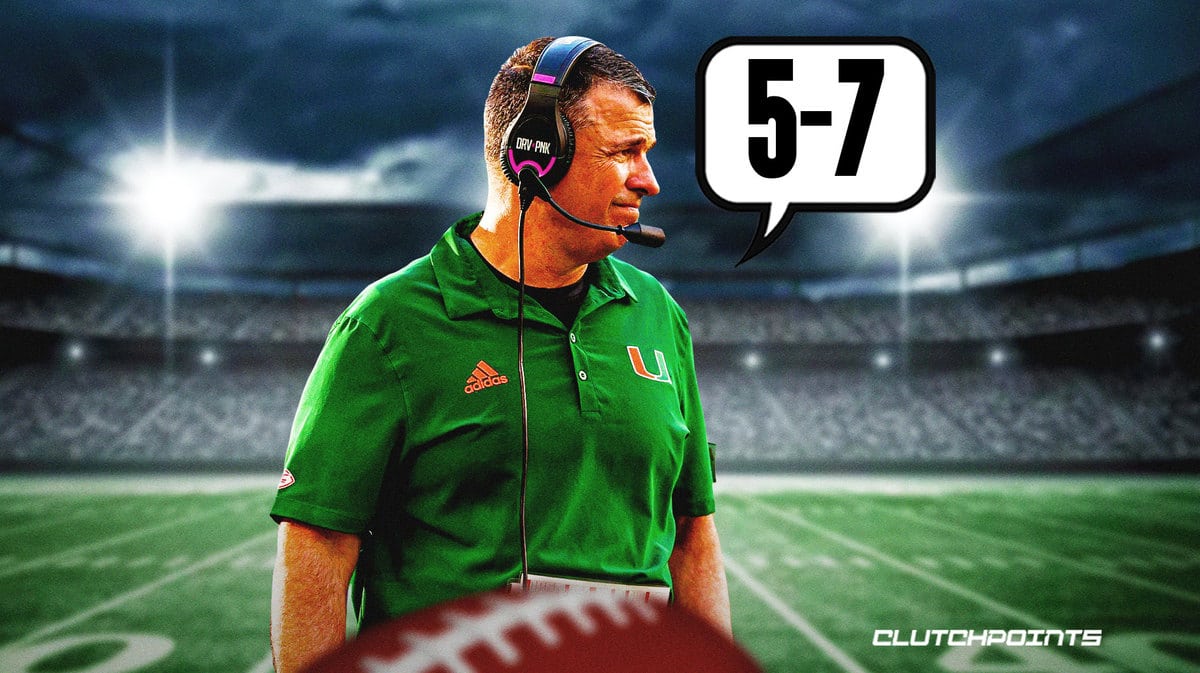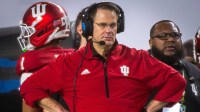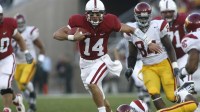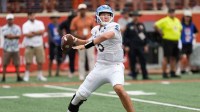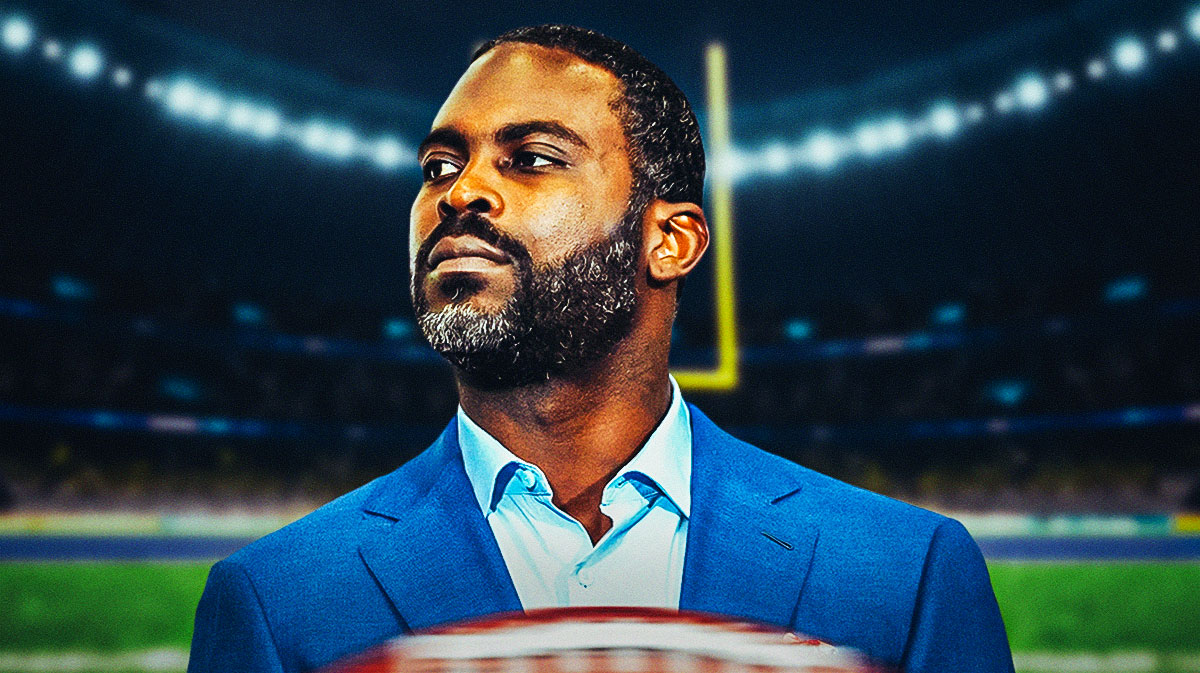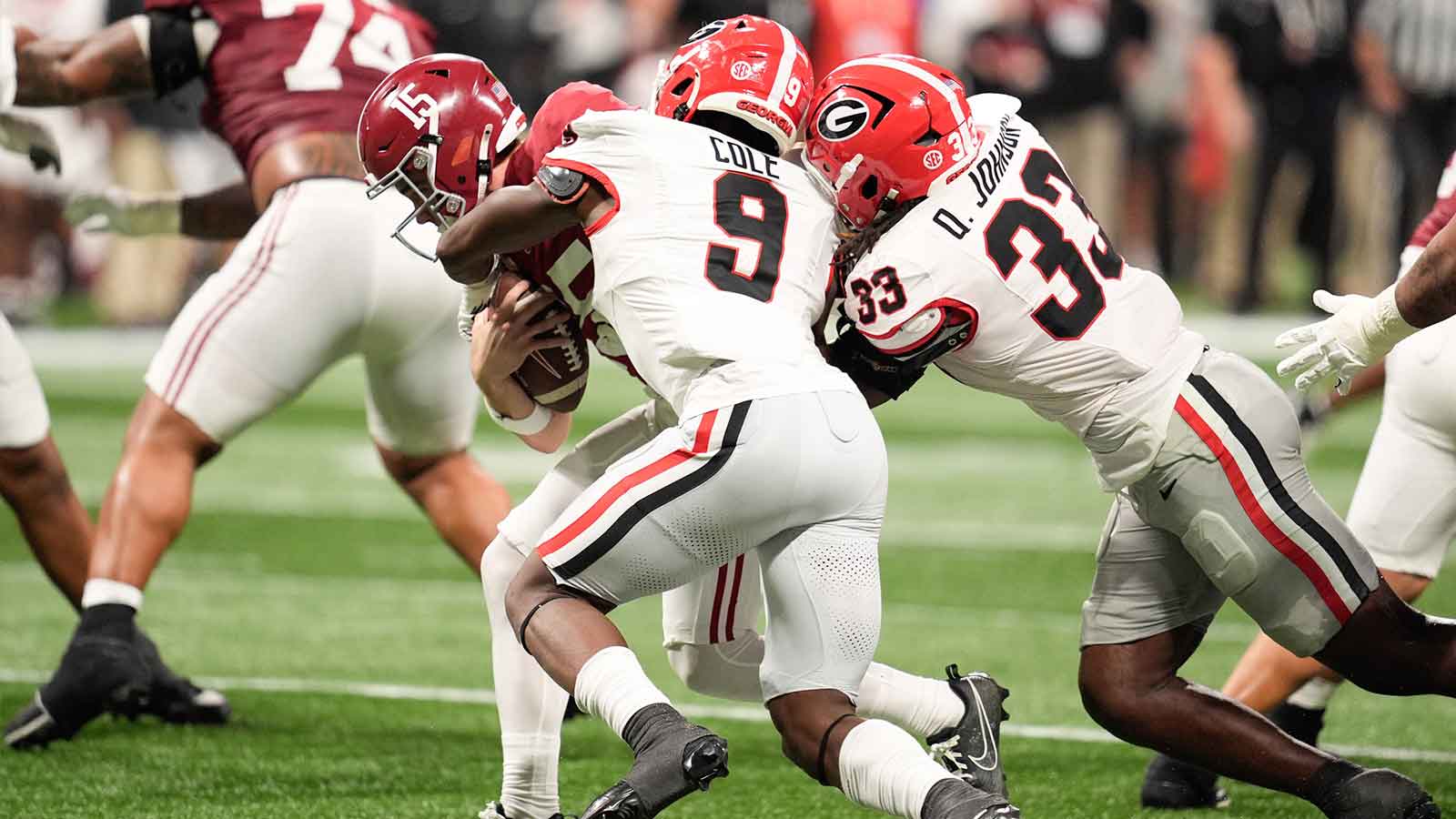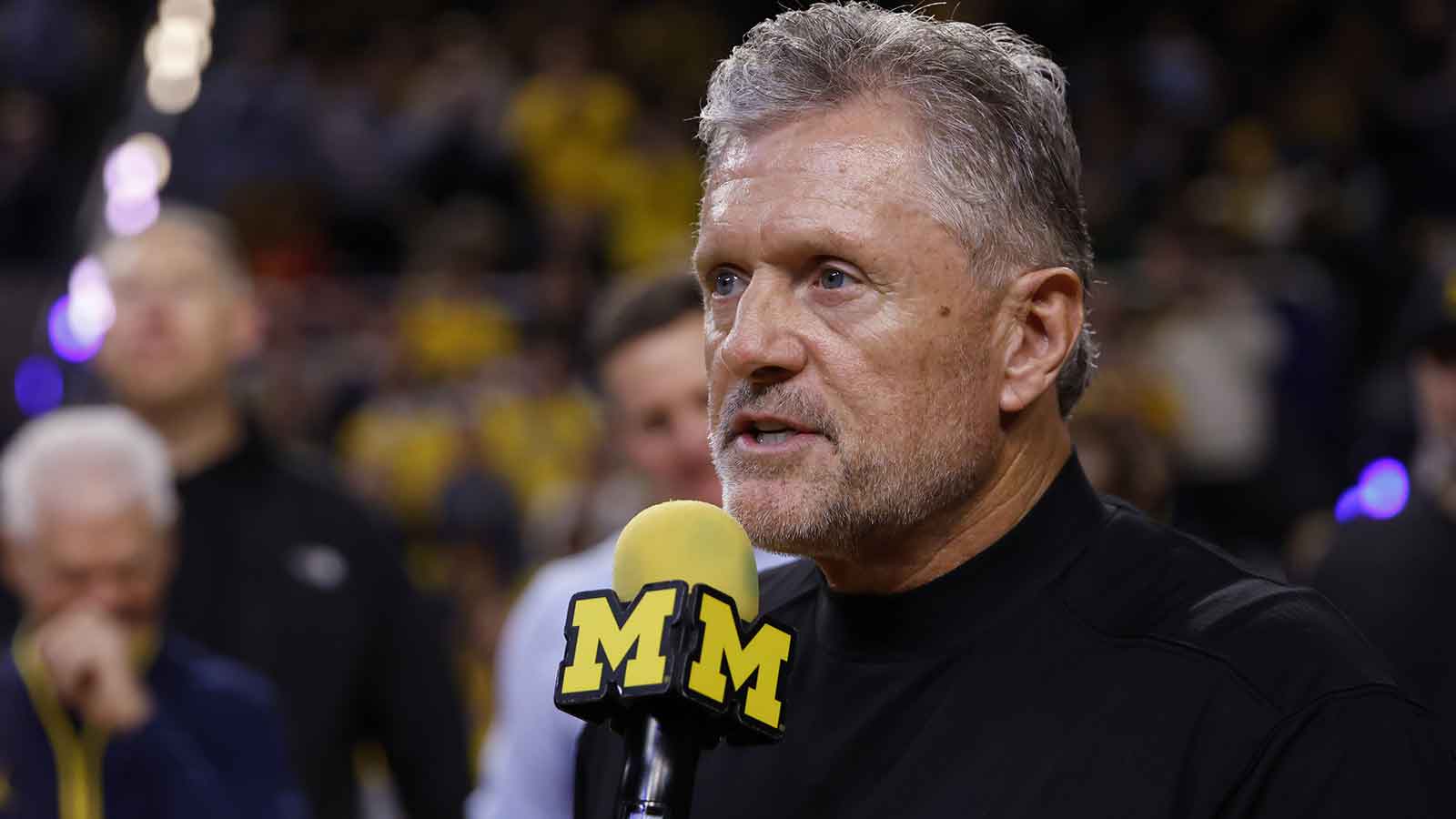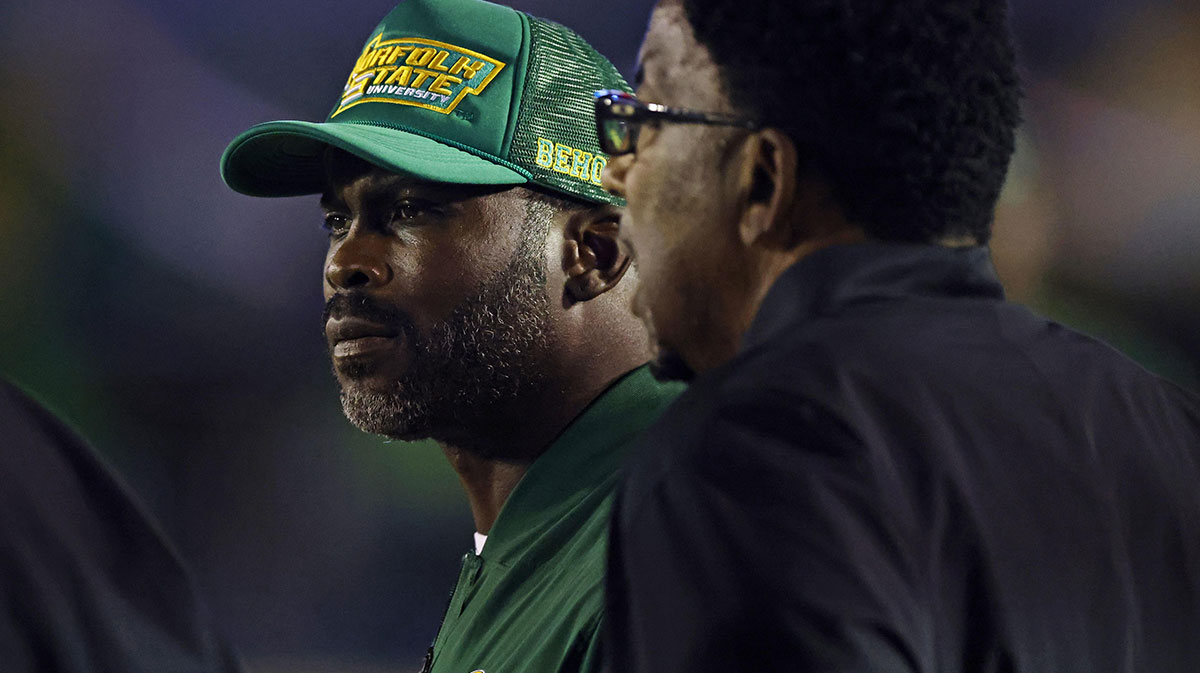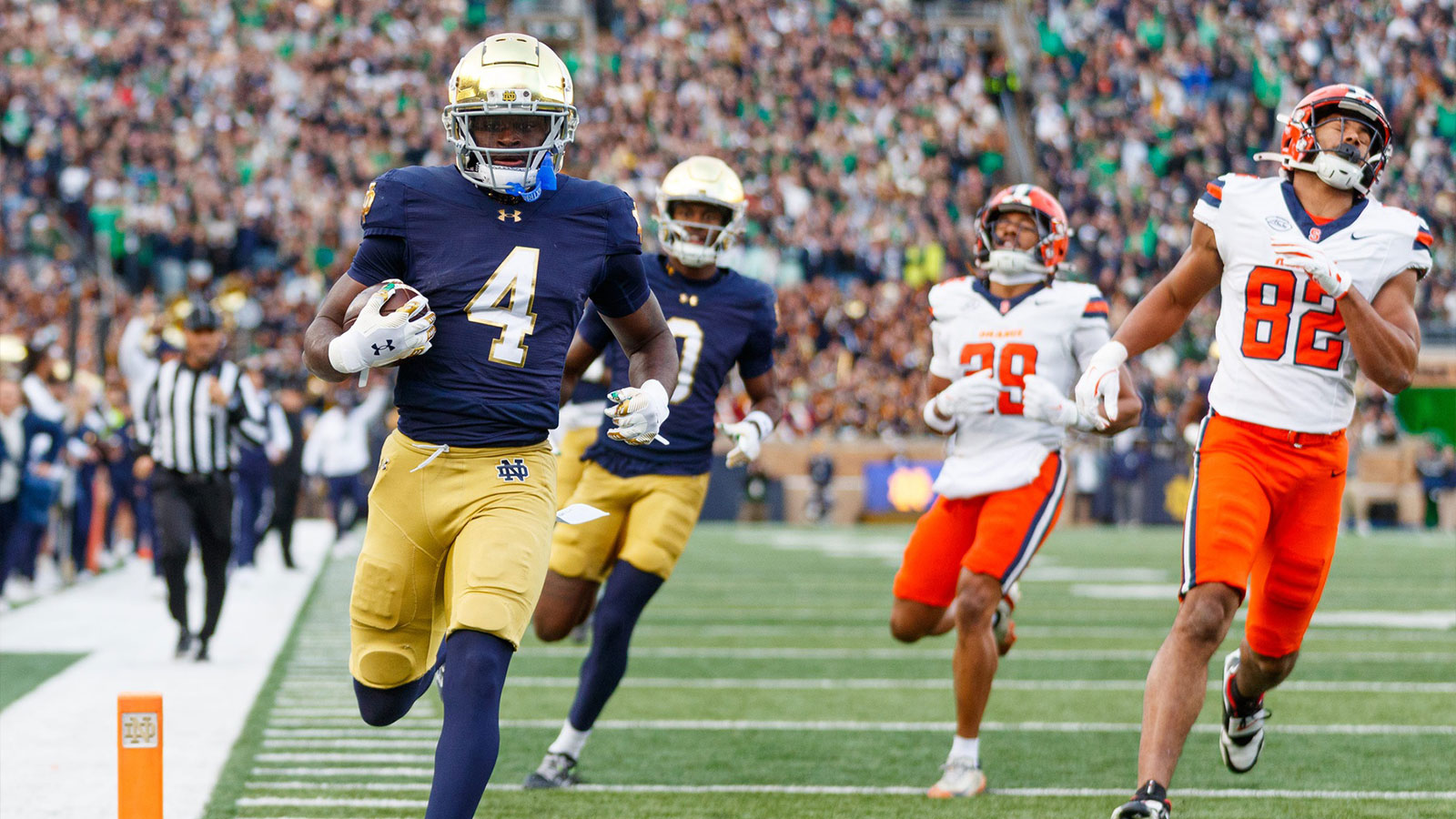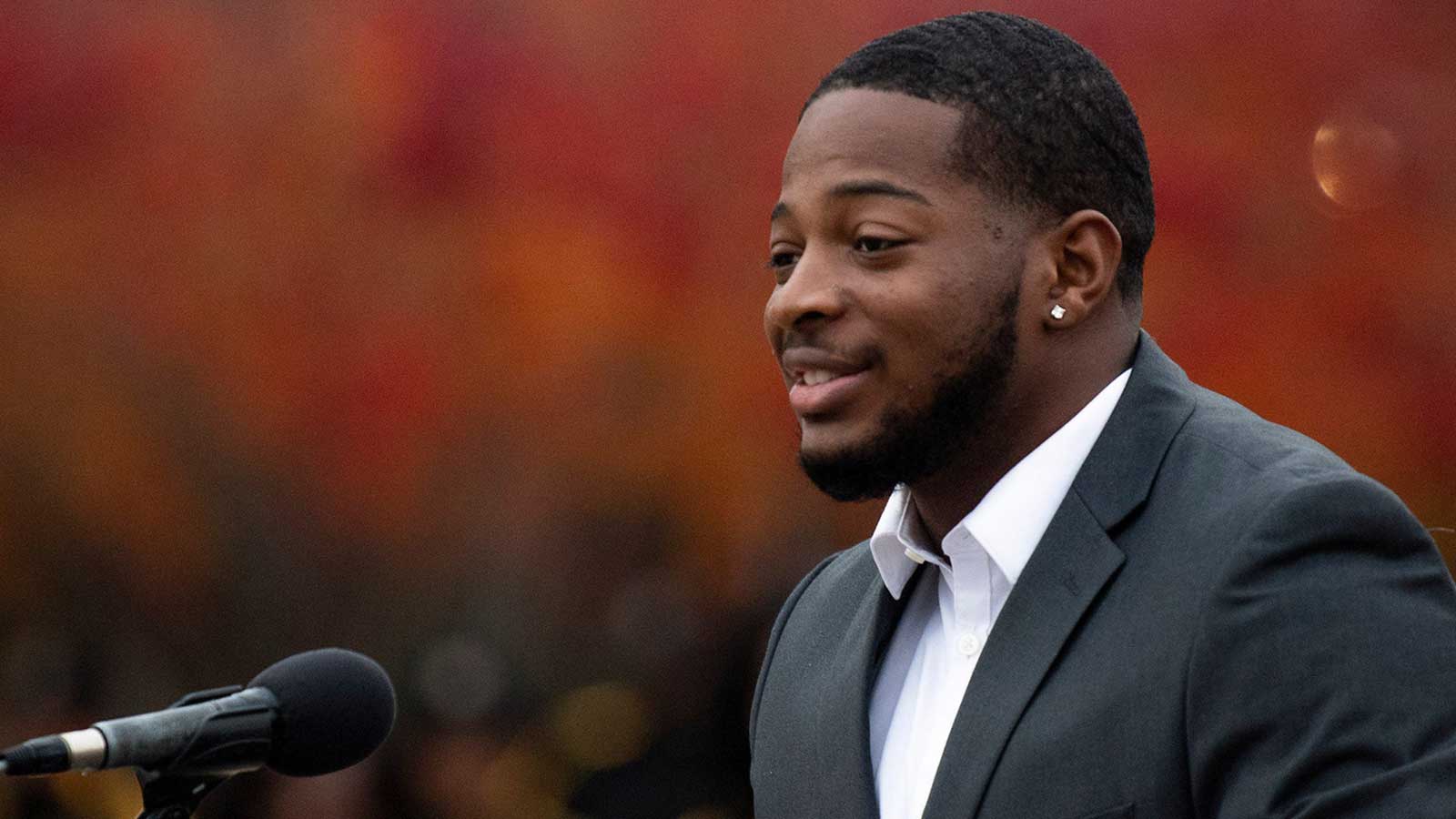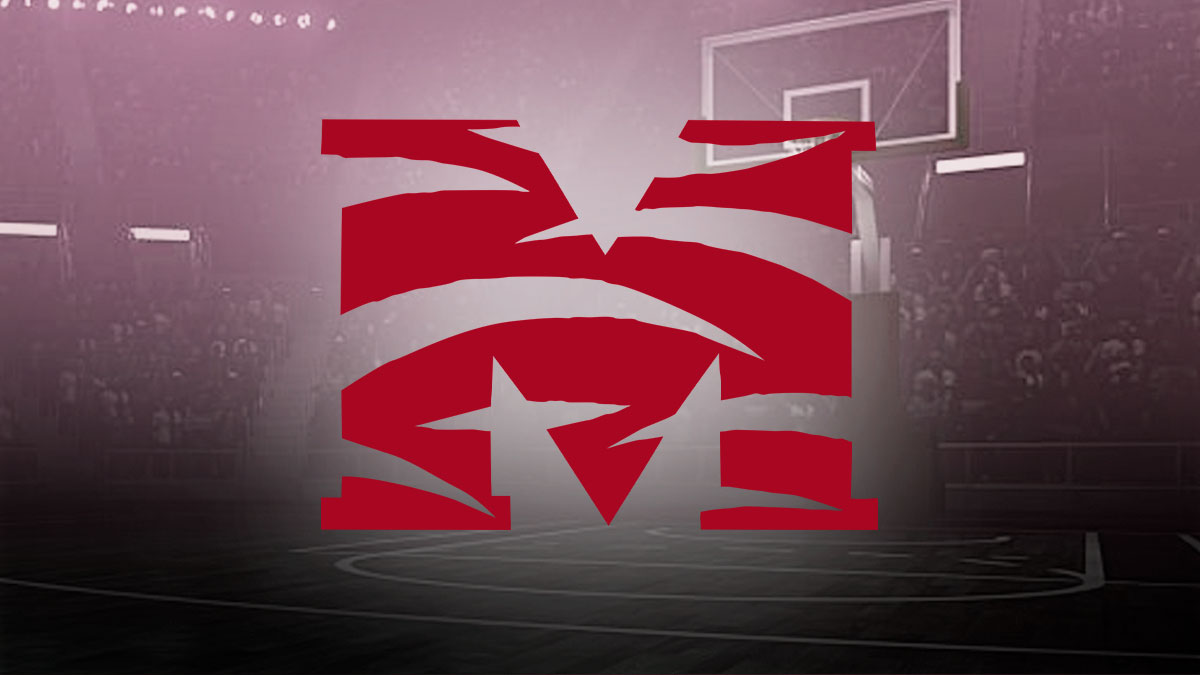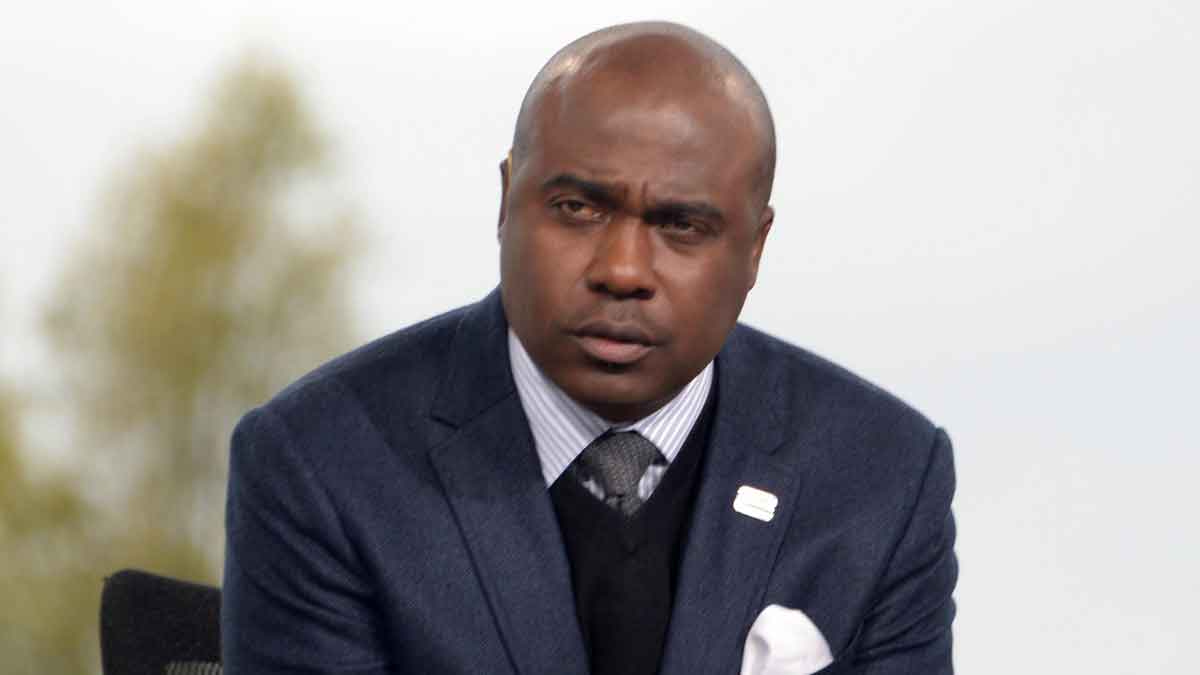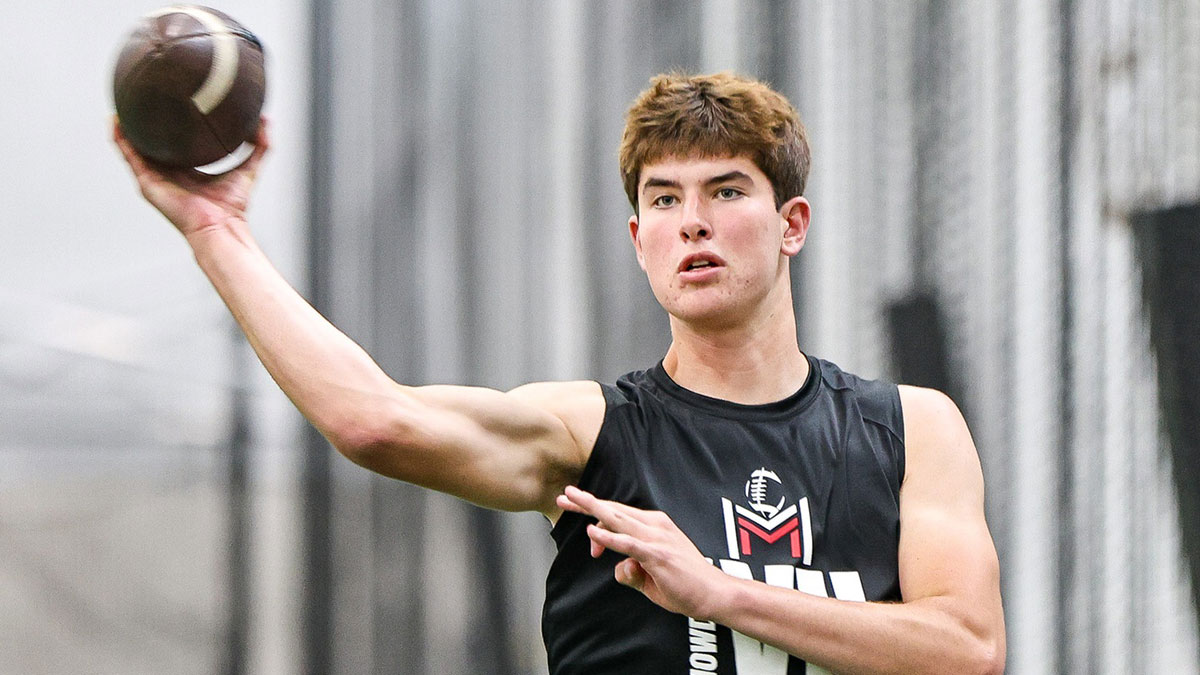The Miami Hurricanes football program is no stranger to success and high expectations. Well, okay, maybe high expectations. Success, on the other hand, has been a stranger for a while now. With a storied history that includes five national championships, the Canes have a certain reputation within college football that they have not withheld in sometime.
Every year, it seems that there's an anxious voice waiting to say, “The U is back!” And every year, without fail, it never happens. Every coach since Larry Coker, who was the last to win a national title for the program, has been nothing short of a letdown. So, it was no surprise that when proven head coach and former Miami player Mario Cristobal left an established Oregon Ducks football team he had built, it seemed the stars were finally aligning. However, the 2022 season was yet another significant setback for the program, as Miami finished with a disappointing 5-7 record.
It's clear that The U was not back.
The new Miami
In retrospect, Miami's dismal season may not have been solely on Cristobal's shoulders. As proven as Cristobal had become over the last several years, it seemed perplexing that a coach of his status could simply fall off so quickly. So, what was the problem? Was it his staff? His players? The facilities? Or was it just Miami football as a whole? Was this the program now? Was this “The New Miami” that Manny Diaz was talking about when he took over as head coach for the Canes after Mark Richt resigned? Perhaps upon further inspection, the Miami football program was in a lot worse shape than anyone truly expected.
The challenges that head coach Mario Cristobal has faced since taking over the program are greater than most expected, according to CaneSport publisher Gary Ferman. The team that Cristobal inherited from Diaz was even worse than anticipated. That point became apparent as last season progressed and the team showed little improvement. A complete overhaul of the roster became a necessity, and Miami coaches have since worked tirelessly to rebuild and reshape the team, nearly from the ground up.
While 2023 is unlikely to bring any national championship aspirations for the Canes, significant improvement will be expected. If Cristobal truly wants to revive what has been a lifeless Miami football team for two decades, year two has to take a major step in progress. The beginning was last year, where he had to make a mess just so he could clean things up. This year, although remnants of the necessary rebuilding process may still remain, they are far less significant than before. The attitude and culture are evolving with each passing day. Cristobal and his staff just have to be consistent in their revival, and here's how they can do that.
4. Keeping talent at home
The University of Miami is in the heart of South Florida talent, which is some of the best in the country. Yet, Miami has been missing out on some of the best in-state talent for nearly two decades, losing them to the likes of Georgia, Alabama and Ohio State, who have often found themselves in the College Football Playoff, while Miami has either been losing lower-tier bowl games or missing them all together.
In Cristobal's first year at Miami, where he wasn't hired until December of 2021, he pulled a total of seven commitments from the state of Florida that helped rank the Canes with the 13th best class in the country, according to 24/7 Sports. Five of those 11 were four-stars, with no five-stars committed for that cycle. For his second class, which will be this year's class, he more than doubled the number of commits from the state of Florida, which helped propel the Canes to the eighth overall class in the country. Twelve of those were four and five-star rated.
These changes signal Cristobal's determination to create a competitive and well-rounded roster while staving off other teams in their backyard.
3. Continuing to be active in the transfer portal
As much as Deion Sanders has made headlines with his overhauling of the roster for the Colorado Buffaloes, Cristobal has done much the same at Miami. Currently, the Canes have the seventh-best average per transfer in the 2023 class, with 16 commits thus far. The transfer portal has become a valuable asset to this staff, as it has addressed some glaring shortcomings. Using this season as an example, Cristobal has made strategic moves by bringing in talented players like Javion Cohen from Alabama and Matt Lee from UCF to strengthen the offensive line, an area that hasn't been addressed for some time in Coral Gables.
With this era in college football, the transfer portal will likely continue to be a valuable asset for teams moving forward. Miami is likely to stay active in this area as well, especially during this rebuild.
2. Consistent staff
Consistency is one of the toughest things in all of college football. Mainly because team turnover is constant, whether it's players leaving due to graduation, leaving early for the NFL, or transferring. Coaching staffs are also part of this turnover. Miami has struggled not only with putting together good coaching staffs over the years but also with holding onto the good coaches they've had. In year two of the Cristobal era, the staff is already different than it was a year ago. However, that's not necessarily a bad thing.
It says a lot about Cristobal's coaching prowess moving forward that he was already willing to move on from offensive and defensive coordinators Josh Gattis and Kevin Steele after last season, and even co-defensive coordinator Charlie Strong, for that matter. There have been many Miami coaches in the past who have clung to their coordinators simply out of loyalty and friendship. Cristobal has already shown that he is not that guy.
However, it's still imperative that Miami does its best to keep as consistent of a staff as possible moving forward to establish their offensive and defensive systems, which will not only help on the field but also off the field in recruiting. There's been a lot of inconsistency at Miami for some time, and coaching is obviously one of the contributing factors.
1. Changing the culture
While the personnel changes have been crucial, transforming the team's culture has become equally vital. With significant roster churn, along with staff changes, Cristobal has faced the challenge of instilling a new culture that aligns with the high standards expected at Miami. Last season's struggles can partly be attributed to the culture shock experienced by the players from Cristobal's new methodology. The roster purge, while significant, has allowed the remaining players to adapt to the new standards and expectations, creating a foundation for a more unified and resilient team.
The last time the Canes won a bowl game was back in 2016 and have since lost in their last four appearances. Their last bowl appearance was in 2020. While the culture and/or stigma of the Miami brand has gone through many iterations over the years, whether that be the inventors of swagger or belligerent thugs, they haven't been winners as of late. They've essentially turned into a shell of the dominating force they used to be considered when they were rulers in college football. A dynamic culture shock was needed, where hopefully losing to teams like Middle Tennessee State or FIU will become a thing of the past.
A season of growth
The upcoming 2023 season is a pivotal one for the Canes. It serves as a building block for the future of the program and an opportunity to showcase the progress made under Cristobal's leadership in year two. Success on the field will be crucial in recruiting top talent to continue putting the pieces together in this rebuild. That, along with player development, is essential to convince other high-caliber prospects that Miami is the place where talents can thrive.
There is reason for optimism heading into the 2023 season. With the roster and staff going through a significant transformation and, more importantly, showing improvement, Miami football can make some noise in what is a fairly weak ACC conference. It is unlikely that another five-win season will be the norm, and there's good reason to believe that this year's Canes group has the capabilities to win eight, maybe nine games. The success of this season will not only shape the immediate future but also the distant one as well, as everyone will be waiting, asking, “Is The U back yet?”

